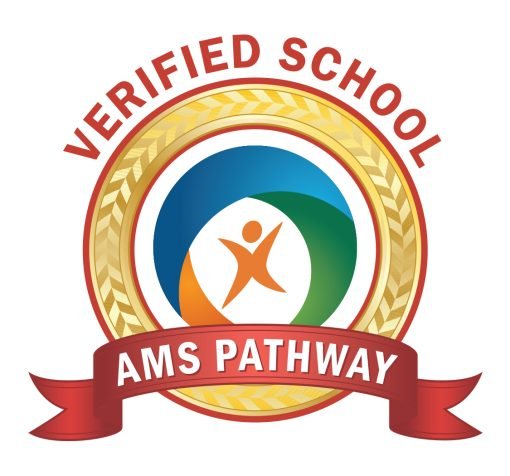The earliest important decision a working parent with an infant or toddler will make is: “Who will care for my child while I’m at work?”
They search for Day Care, Child Care, Pre-school and anything near them.
The search begins with talking with other parents, surfing the net, researching types of centers etc. There is so much information and options, it is hard for a parent to discern where to start, and once you’ve started, how do you vet providers?
Babies and Toddlers are limited in the feedback they give to parents from their daycare. So it becomes the job of the parent to act on their behalf by asking questions, visiting, observing and qualifying centers based on the things considered MOST IMPORTANT for your child. The goal is for you to trust the center you choose with this most precious of your possessions.
The three basic ‘musts’ on a parent’s shortlist are:
- Nurturing staff
- Safe and wholesome
- Clean and orderly
Even if you have a longer list, it won’t matter if the center you are investigating lacks any of these first three.
Basic ‘Must’ #1: Nurturing Staff are Intelligent, Patient, Joyful and Disciplined
- Intelligent caregivers are part of the environment that is absorbed by the child. Their qualifications raise the level of care. Parents should ask about the training and educational background of the staff and how long the caregiver in the particular classroom has been there. Parents will find that college degrees in the childcare field and school supported ongoing professional development all contribute to a better day for your child. The center needs to be fully supportive of what their staff has been trained and educated to do. It may make the difference between an awake infant lying in their crib staring at the ceiling and one who has playtime on the rug with a human on their level. Positive and engaging Infant interaction is vital. Parents will notice that the higher level of caregiver qualifications, the higher the center fees, and they will know why.
- Patient caregivers are developed over time, even for those who are naturally patient, since having patience with one child is different from what is required in a full day infant or toddler classroom of 4-6 children per caregiver (the recommended teacher/student ratio). Note that the ‘recommended’ number is a lower ratio than what you fill find in the State Minimum Requirements for student/teacher ratios. Parents should ask what is the student/teacher ratio in the classroom their child might be in and understand that a lower ratio is better for the child. Again, if the center has higher fees to accomplish this, parents will know why. The patient caregiver has support if they can work with a seasoned mentor teacher, whom they can observe practicing serenity and tolerance, adding to everyone’s contentment.
- Joyful caregivers are those who realize they have an important purpose in their life and that life itself is full of wonder and discovery. If a caregiver can celebrate a blade of grass or a ladybug with a child in her care, it is a good sign. Look for caregivers who laugh a lot.
- Disciplined caregivers – we’re talking about self- discipline – are necessary because their job is very demanding and requires knowledge, organization and meticulous attention to detail.
Basic ‘Must’ #2: Safe and Wholesome
- Safe. All licensed facilities are required to meet minimum standards which include daily grounds checks and inspections of all rooms that children occupy. Parents can go to the TDPFS website and read how the center they are considering meets the minimum requirements. In addition, parents should ask what means the center uses to restrict non-members from access to children. Most centers nowadays have card or code entry, fingerprint or ID check-in. Centers can be safe without looking like a prison.
- Wholesome here means nourishing and health-giving. Look at the menus and snack lists. Look at the liquids offered. Do they allow fruit juices? Water is better. Does the center allow outside fast food to be brought in? Do they have cookies and non-healthy snack foods? Do the staff model nutritious eating habits? Does the center have a culture that addresses these issues? What does their parent handbook say about nutrition, healthy snacks, etc.?
Basic ‘Must’ #3: Clean and Orderly
- Clean centers promote the management of contagious illnesses. Parents who observe a classroom should watch how often the caregivers and the children wash their hands. For any age child, hand-washing is the single best prevention of disease. The restrooms and floors must be clean. Infant communities usually require ‘no shoes’ in the room.
- Orderly centers make jobs easier for caregivers and contribute to calmness, independence, and responsibility in even the youngest of children. Parents who observe a classroom should see if there is a place for everything and everything is in its place. As soon as children learn to walk, they want to know where things belong. They have a strong sense of order and they will help keep their day time ‘home’ neat.
So armed with this little checklist, a parent now has a basis for comparing centers for their child’s care.
If the center closest to your house happens to rank the highest in these top three ‘musts’, you have just won the lottery. This decision will take you to the next important level that you will notice when your child is around 18 months to 36 months– when your search moves from childcare to “Now I’ve got this energetic and intensely curious child who is demanding more of his environment”!
It’s both tough and fun to keep one step ahead of these little human beings. They will leapfrog over us as they learn and grow. That is what we want for them, isn’t it?




